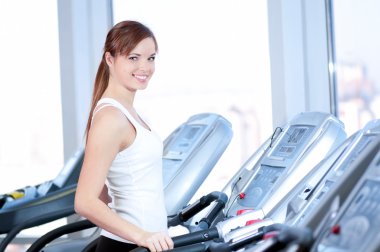
Can I Exercise After Dinner (5 Important Factors)
Can I exercise after dinner to boost my metabolism and enhance digestion, or is it better to wait for a specific timeframe to avoid discomfort and optimize my workout effectiveness? It’s essential to strike a balance between post-meal activity and personal well-being.
As the sun dips below the horizon, casting a warm glow on the remnants of your evening meal, a question emerges: Can you defy the gravitational pull of the couch and venture into the realm of post-dinner exercise? Picture this: the world outside your window transformed into a canvas of possibilities, the gentle hum of digestion providing a rhythmic backdrop to your potential workout.
The notion of exercising after dinner isn’t just a matter of burning calories; it’s a dance with the night, a rebellion against sedentary norms, and a rendezvous with the unexpected energy that lurks beneath the surface of a satiated stomach. So, can you exercise after dinner, Buckle up, because the journey into the twilight world of post-dinner workouts is about to unfold, and it’s anything but ordinary.

Can I Exercise After Dinner
Yes, you can exercise after dinner, but it’s essential to consider various factors for optimal results.
The Timing Conundrum: Finding the Sweet Spot
Many individuals grapple with the dilemma of whether it’s suitable to exercise after dinner. The truth lies in finding the sweet spot – a time that aligns with your body’s natural rhythms and doesn’t compromise your sleep quality.
Metabolism Matters: Factoring in Digestion
Understanding your body’s metabolism plays a crucial role in post-dinner workouts. While some swear by the benefits of boosting metabolism through evening exercise, others caution against intense activities that may disrupt the digestion process.
Light vs. Intense: Tailoring Your Routine
The intensity of your workout matters. Engaging in light exercises like walking or gentle yoga can be beneficial post-dinner, aiding digestion and promoting relaxation. However, vigorous workouts might be best reserved for earlier in the day.
Sleep Signals: Navigating the Impact on Rest
Balancing the benefits of exercise with its potential impact on sleep is vital. Some people find evening workouts invigorating, while others may experience difficulty falling asleep. Listening to your body’s signals is key to striking the right balance.
Personalized Approach: Your Body, Your Rules
Ultimately, whether you can exercise after dinner depends on your body’s unique response. Pay attention to how it affects your sleep, energy levels, and overall well-being, adjusting your routine accordingly. There’s no one-size-fits-all answer, emphasizing the importance of a personalized approach.
Factors to Consider Before Exercising After Dinner
Personal Health
Pre-existing health conditions
Personal health is a holistic state encompassing physical, mental, and emotional well-being. It is a dynamic balance that individuals strive to maintain through various lifestyle choices, including regular exercise, a balanced diet, and adequate sleep. When considering the question of exercising after dinner, it’s essential to be mindful of personal health conditions.
Certain conditions, such as digestive disorders or cardiovascular issues, may warrant specific considerations and modifications to exercise routines. Taking into account individual health status, preferences, and medical advice ensures a personalized and safe approach to maintaining overall well-being. It’s important to strike a balance that promotes fitness while respecting the unique needs of one’s body and health circumstances.
Consultation with a healthcare professional
When contemplating the question of exercising after dinner, it is crucial to seek guidance from a healthcare professional to ensure personalized and accurate advice tailored to individual health conditions. A consultation with a healthcare professional can shed light on various factors, including the individual’s overall health, specific medical history, and any existing conditions that may impact post-meal physical activity.
Professionals can provide insights into the optimal timing and intensity of exercise based on factors such as digestion, blood sugar levels, and metabolic rate. Moreover, they can offer valuable recommendations for safe and effective post-dinner exercise routines, taking into account the potential benefits and risks associated with late-night physical activity. Engaging in a dialogue with a healthcare expert fosters a collaborative approach to maintaining a healthy lifestyle and aids in making informed decisions about incorporating exercise into one’s daily routine.
Fitness Goals
Weight loss
Engaging in exercise after dinner can be a beneficial component of a weight loss strategy, although the timing and intensity of the activity may influence its effectiveness. While it’s generally recommended to wait at least 1-2 hours after a meal before engaging in vigorous exercise to avoid discomfort, light activities like walking or gentle stretching can be performed sooner.
Post-dinner exercise can help boost metabolism, burn calories, and improve digestion. However, individual preferences and body responses vary, so it’s crucial to listen to your body and choose activities that suit your comfort level. Consistency in exercise and maintaining a balanced diet remain pivotal for weight loss, with post-dinner workouts serving as an additional tool in achieving fitness goals. Always consult with a healthcare professional or fitness expert to tailor a routine that aligns with your personal needs and objectives.
Muscle building
Engaging in muscle-building exercises after dinner can be effective, provided it aligns with your individual preferences and schedule. While some individuals may find it challenging to exercise on a full stomach, others may tolerate it well. The key is to strike a balance between energy levels and comfort. Post-dinner workouts can tap into the nutrients consumed during the meal, potentially boosting performance.
However, it’s essential to be mindful of the types and quantities of food consumed, as heavy or large meals may lead to discomfort during exercise. Opting for lighter, easily digestible options may be beneficial. Additionally, incorporating resistance training and strength exercises into your evening routine can contribute to muscle development, provided you maintain consistency and adhere to your fitness goals. Ultimately, the timing of your workout should align with your personal preferences and body’s response to exercise after dinner.

Cardiovascular health
Cardiovascular health is a crucial aspect of overall well-being, and maintaining a healthy heart is essential for a long and active life. The question of whether one can exercise after dinner is a common concern, and the answer largely depends on individual preferences and comfort levels. While some experts suggest that engaging in light physical activity after dinner, such as taking a leisurely walk, can aid digestion and contribute to overall cardiovascular health, others advise against intense workouts close to bedtime.
It’s important to strike a balance that suits your body and lifestyle, considering factors like personal energy levels, sleep patterns, and overall health goals. Regardless of the timing, regular physical activity, combined with a balanced diet, plays a pivotal role in promoting cardiovascular health by strengthening the heart, improving circulation, and maintaining healthy blood pressure levels. Always consult with a healthcare professional before making significant changes to your exercise routine, especially if you have any underlying health conditions.
Type of Exercise
Low-intensity vs. high-intensity
The debate between low-intensity and high-intensity exercise after dinner hinges on individual preferences, fitness goals, and overall health considerations. Low-intensity exercise, such as a leisurely post-dinner walk, can aid digestion and promote a sense of relaxation, making it a suitable choice for those seeking gentle physical activity.
On the other hand, high-intensity workouts, like intense cardio or strength training sessions, may elevate heart rate and metabolism more significantly, potentially leading to improved calorie burn. However, engaging in vigorous exercise too close to bedtime may disrupt sleep for some individuals. It’s essential to strike a balance based on personal fitness levels, energy levels, and any potential impact on sleep quality. Ultimately, the choice between low and high intensity after dinner depends on one’s fitness objectives, overall health, and individual preferences.

Impact on digestion
Exercising after dinner can have both positive and negative impacts on digestion, depending on individual factors and the intensity of the exercise. On the positive side, engaging in light physical activity, such as a leisurely walk, may aid digestion by promoting the movement of food through the digestive tract and helping prevent bloating or discomfort.
However, intense exercise immediately after a meal may divert blood flow away from the digestive organs, potentially slowing down the digestive process and causing discomfort. Additionally, lying down or performing inverted exercises may lead to acid reflux for some individuals. It’s essential to listen to your body and consider your own tolerance for exercise after dinner. Moderation and choosing low-intensity activities are generally advisable to strike a balance between maintaining a healthy digestion and incorporating physical activity into your routine.
Meal Composition
Timing of the last meal
The timing of the last meal plays a crucial role in determining whether it is advisable to exercise after dinner. Consuming a heavy or large meal right before exercising may lead to discomfort, bloating, and even indigestion. Ideally, individuals should allow at least 2-3 hours between their last meal and exercise to allow for proper digestion.
However, light snacks containing a balanced mix of carbohydrates and protein can be consumed around 30-60 minutes before a workout to provide energy without causing discomfort. It’s essential to listen to your body and adjust the timing based on personal preferences and tolerance levels. Exercising after dinner can be beneficial for those with busy schedules, but it’s important to strike a balance between fueling the body adequately and avoiding discomfort during physical activity.
Types of nutrients consumed
The types of nutrients consumed in a post-dinner setting play a crucial role in determining whether one can engage in exercise afterward. After dinner, individuals typically consume a combination of macronutrients such as carbohydrates, proteins, and fats. Carbohydrates provide a quick energy source, proteins aid in muscle repair and growth, and fats contribute to overall energy balance.
While it’s generally advisable to wait for a certain period before engaging in vigorous exercise after a meal, light to moderate physical activity, such as walking or gentle stretching, can be beneficial. However, heavy or intense workouts immediately after dinner may lead to discomfort and indigestion. The key is to strike a balance between nutrient intake and the timing of exercise, ensuring that the body has sufficient time to begin the digestion process while still having the energy required for physical activity.

Individual Preferences
Morning vs. evening exercise preference
Work and lifestyle considerations
Engaging in exercise after dinner is a practice that requires thoughtful consideration of both work commitments and lifestyle factors. Balancing the demands of a busy work schedule with the desire to maintain a healthy lifestyle can be challenging. Incorporating exercise after dinner may be a viable option for those who find it difficult to carve out time earlier in the day.
However, it’s crucial to assess personal energy levels and preferences, as some individuals may experience discomfort or disrupted sleep when exercising close to bedtime. Additionally, the type and intensity of the workout should be tailored to personal fitness goals and health conditions. While post-dinner exercise can contribute to improved metabolism and overall well-being, individuals should be mindful of their unique circumstances to strike a harmonious balance between work commitments and a healthy lifestyle.
Benefits of Exercising After Dinner
Improved Metabolism
Enhanced Calorie Burn
Improved metabolism and enhanced calorie burn are key benefits that can be achieved by engaging in exercise after dinner. Physical activity, even in the evening, has been shown to boost metabolism, allowing the body to efficiently process and utilize the calories consumed during the day. This phenomenon, known as the afterburn effect or excess post-exercise oxygen consumption (EPOC), implies that the body continues to burn calories at an elevated rate after the workout session.
This heightened metabolic state can be particularly advantageous when performed after dinner, as it helps prevent the storage of excess calories as fat. Incorporating exercise into your evening routine can not only contribute to weight management but also positively impact overall health by promoting better digestion, blood circulation, and sleep quality. It’s important to strike a balance, choosing activities that are not too intense to interfere with sleep while still providing the metabolic benefits of post-dinner exercise.
Impact on Insulin Sensitivity
Exercising after dinner can have a positive impact on insulin sensitivity, playing a crucial role in managing blood sugar levels. Physical activity stimulates glucose uptake by muscle cells, allowing the body to use insulin more efficiently. Postprandial exercise, particularly aerobic activities like walking or cycling, has been shown to enhance insulin sensitivity and promote glucose metabolism.
This is particularly beneficial for individuals with insulin resistance or type 2 diabetes, as it helps lower blood sugar levels and improves overall metabolic health. Engaging in moderate-intensity exercise after dinner may also contribute to weight management and reduce the risk of developing insulin-related complications.
However, it’s essential to strike a balance and avoid intense workouts right after a heavy meal, as this could potentially lead to discomfort. Consulting with a healthcare professional or a fitness expert can help tailor an exercise routine that aligns with individual health goals and maximizes the benefits of post-dinner physical activity.
Stress Reduction
Release of Endorphins
Engaging in exercise after dinner can trigger the release of endorphins those remarkable neurotransmitters often referred to as the body’s natural mood elevators. As you partake in physical activity, whether it’s a brisk walk, a gentle yoga session, or a more intense workout, your body responds by producing endorphins. These chemicals act as natural painkillers and stress relievers, contributing to an overall sense of well-being.
While some individuals may worry about exercising too close to bedtime affecting their sleep, moderate post-dinner workouts for most people can be invigorating rather than disruptive. The release of endorphins not only enhances your mood but can also aid in digestion and promote a sense of relaxation, potentially contributing to a more restful night’s sleep. As with any fitness routine, it’s essential to listen to your body and choose activities that align with your personal comfort and energy levels.
Mental Health Benefits
Engaging in exercise after dinner not only contributes to physical well-being but also provides significant mental health benefits. Physical activity triggers the release of endorphins, the body’s natural mood elevators, which can help alleviate stress, anxiety, and feelings of depression. The act of exercising itself can serve as a powerful distraction from daily worries, allowing individuals to focus on the present moment and clear their minds.
Moreover, post-dinner exercise has been linked to improved sleep quality, promoting better mental and emotional resilience. The combination of increased blood flow, enhanced oxygen delivery to the brain, and the release of neurotransmitters during exercise contributes to cognitive function and overall mental clarity. Incorporating physical activity into one’s routine after dinner not only supports physical fitness but also nurtures a positive and resilient mental state.
Consistency in Routine
Overcoming Time Constraints
Overcoming time constraints when considering exercising after dinner requires strategic planning and a commitment to prioritizing one’s health and fitness. Recognizing that busy schedules often leave little room for physical activity during conventional hours, individuals may need to adopt a flexible approach to their workout routines. Incorporating post-dinner exercise sessions demands a delicate balance to avoid discomfort or interference with digestion.
Opting for lighter activities like a brisk walk or gentle yoga can be effective in mitigating potential issues. Moreover, establishing a consistent routine and gradually adjusting one’s body to evening workouts can contribute to overcoming time constraints. By viewing post-dinner exercise as an essential investment in overall well-being, individuals can foster a mindset that encourages them to overcome the challenges of limited time and reap the benefits of maintaining an active lifestyle.
Establishing a Regular Exercise Habit
Establishing a regular exercise habit is a commendable endeavor that brings numerous health benefits, and the question of whether one can exercise after dinner is a common inquiry. Engaging in physical activity post-dinner can be advantageous for those with busy schedules or specific preferences. While some individuals may find morning workouts more energizing, exercising after dinner can be equally effective.
However, it’s essential to strike a balance and consider individual factors such as personal energy levels, sleep patterns, and the type of exercise chosen. Lighter activities like a leisurely walk or gentle stretching can be beneficial without interfering with sleep, while more intense workouts may require a longer time gap before bedtime. Ultimately, the key to establishing a sustainable exercise routine is finding a time that aligns with one’s lifestyle, ensuring consistency and long-term adherence to a healthy and active lifestyle.
Drawbacks of Exercising After Dinner
Sleep Disruption
Impact on sleep quality
Disrupting sleep can have a profound impact on the overall quality of rest one receives. Sleep is a crucial component of overall well-being, affecting cognitive function, emotional balance, and physical health. Engaging in exercise after dinner, especially intense or vigorous workouts, can potentially disrupt the body’s natural circadian rhythm, making it challenging for individuals to wind down and enter into a restful state.
Physical activity increases heart rate, body temperature, and adrenaline levels, which are typically counterproductive to the natural sleep-inducing processes. However, this can vary from person to person, as some may find that light exercises or gentle activities post-dinner have a minimal impact on their sleep quality. It’s essential for individuals to pay attention to their own body’s response and adjust their exercise routine accordingly to promote a healthy balance between physical activity and quality sleep.
Timing of high-intensity workouts
The timing of high-intensity workouts, especially after dinner, is a topic that requires consideration of individual preferences, body rhythms, and lifestyle factors. While some people may find that exercising after dinner works well for them, others may experience discomfort or difficulty sleeping due to increased heart rate and body temperature.
It’s essential to listen to your body and choose a timing that aligns with your personal preferences and circadian rhythm. Engaging in high-intensity workouts after dinner may have its benefits, such as boosting metabolism and promoting calorie burn, but it’s crucial to strike a balance to avoid potential disruptions to sleep quality. Experimenting with different timings and paying attention to how your body responds can help you determine the optimal time for high-intensity exercise within your daily routine.

Digestive Discomfort
Potential for indigestion
Digestive discomfort, can be a common concern when contemplating exercising after dinner. The digestive system requires energy to break down food, and engaging in vigorous physical activity immediately after a meal may divert blood flow away from the digestive organs, leading to slower digestion and an increased likelihood of discomfort.
Additionally, lying down or engaging in certain exercises that compress the abdomen can exacerbate the issue. While light activities like walking may be more manageable, intense workouts are generally best reserved for a post-digestive period. It’s essential to listen to your body and gauge its response to exercise after eating, as individual tolerance varies. In some cases, waiting at least 1-2 hours after a meal before engaging in rigorous physical activity can help minimize the risk of digestive discomfort and promote overall well-being.
Waiting time after a meal
The waiting time after a meal is a crucial consideration for those contemplating exercise, especially after dinner. It is generally recommended to allow for a period of digestion before engaging in physical activity. After consuming a meal, the body directs blood flow to the digestive system to break down and absorb nutrients.
Intense exercise immediately after eating may divert blood away from the digestive organs, potentially causing discomfort, bloating, or even cramping. Waiting at least 30 minutes to an hour after a meal before exercising allows the body to optimize digestion and absorption processes, minimizing the risk of digestive issues and promoting overall comfort during physical activity.
This interval also provides an opportunity for the body to convert ingested nutrients into energy, which can enhance exercise performance. However, the specific waiting time may vary depending on the individual, the size and composition of the meal, and personal tolerance levels. Listening to one’s body and adjusting the waiting time accordingly is essential for a balanced and effective approach to post-meal exercise.
Individual Variability
Different responses to evening exercise
The question of whether one can exercise after dinner elicits varied responses, as individual reactions to evening workouts differ. Some people find that engaging in physical activity post-dinner provides a welcome energy boost and helps alleviate stress accumulated throughout the day. For them, evening exercise serves as a productive outlet, enhancing mood and promoting better sleep.
However, others may experience discomfort, digestive issues, or disrupted sleep patterns when exercising too close to bedtime. It is essential to consider personal preferences, tolerance levels, and specific health conditions when deciding whether to engage in evening exercise. Ultimately, the key lies in finding a balance that aligns with individual needs and goals, ensuring that the chosen workout routine enhances overall well-being without compromising sleep or causing discomfort.
Finding the optimal time for each person
Determining the optimal time for exercise is a subjective matter, varying from person to person based on individual preferences, lifestyle, and daily schedules. The question of whether one can exercise after dinner is contingent on personal factors such as metabolism, energy levels, and sleep patterns. Some individuals find that engaging in physical activity post-dinner can be invigorating and aids in digestion, while others may experience discomfort or disrupted sleep.
It is essential to consider one’s own body clock and listen to its cues. Experimentation with different workout times can help identify the most suitable period for exercise, taking into account factors like work commitments and family obligations. Ultimately, the key is to strike a balance that aligns with an individual’s overall well-being and fosters a sustainable fitness routine.
Tips for Safe and Effective Evening Exercise
Allow Sufficient Digestion Time
Allowing sufficient digestion time after dinner is crucial when considering whether to exercise. Digestion is a complex process that involves breaking down food into nutrients that the body can absorb and utilize for energy. Engaging in vigorous physical activity immediately after a meal can divert blood flow away from the digestive system, potentially leading to discomfort, bloating, and even indigestion.
To optimize both digestion and exercise performance, it is advisable to wait at least 1-2 hours after a substantial meal before engaging in intense physical activity. This timeframe allows the body to process and absorb nutrients, reducing the risk of digestive issues during exercise. Additionally, giving the body ample time to digest ensures that energy is available for the workout, promoting overall well-being and maximizing the benefits of both the meal and the exercise routine.
Choose Appropriate Exercises
Choosing appropriate exercises after dinner is essential for maintaining a healthy balance between physical activity and digestion. Opting for low-intensity activities such as walking or gentle stretching can be beneficial, as they help stimulate blood flow and aid in digestion without putting excessive strain on the digestive system.
Engaging in high-intensity workouts immediately after dinner may lead to discomfort and disrupt the digestion process. It’s advisable to focus on activities that promote relaxation and flexibility, such as yoga or tai chi, which can also contribute to stress reduction. Ultimately, the key is to listen to your body and select exercises that align with your energy levels, allowing for a harmonious post-dinner routine that promotes overall well-being.
Hydration Considerations
Hydration considerations play a crucial role in determining whether exercising after dinner is a suitable choice. While staying active post-dinner can be beneficial for metabolism and overall fitness, proper hydration is paramount. It is essential to strike a balance between replenishing fluids lost throughout the day and avoiding excessive intake that may lead to discomfort during physical activity.
Consuming water before, during, and after exercise helps maintain optimal performance, aids in digestion, and prevents dehydration. However, engaging in intense workouts immediately after a heavy dinner may cause discomfort, as blood flow is redirected to the digestive system. Therefore, it is advisable to allow some time for digestion before engaging in vigorous exercise. Adhering to a well-hydrated state and timing workouts appropriately can enhance the overall effectiveness and comfort of exercising after dinner.
Listen to the Body
Listening to your body is crucial, especially when considering exercise after dinner. It’s essential to tune into signals such as energy levels, digestion, and overall comfort. While light physical activity after dinner can be beneficial for digestion and metabolism, intense workouts may not be suitable for everyone.
Pay attention to how your body responds to different forms of exercise, considering factors like bloating or discomfort. Opting for activities like a leisurely walk or gentle stretching can promote relaxation and aid in digestion without putting excessive strain on the body. Ultimately, the key is to strike a balance between staying active and respecting your body’s signals, ensuring a positive post-dinner exercise experience.
Create a Consistent Schedule
Establishing a consistent schedule is crucial when contemplating whether to exercise after dinner. Creating a routine not only helps in managing time effectively but also enhances the likelihood of incorporating exercise into daily life. When considering post-dinner workouts, it’s essential to align them with a schedule that accommodates your body’s natural rhythm and energy levels.
By consistently allocating a specific time for exercise, whether it’s immediately after dinner or a bit later, you can cultivate a habit that promotes physical well-being. This routine not only ensures that you make time for exercise but also aids in digestion and improves sleep quality. The key is to find a time that suits your personal preferences and lifestyle, allowing you to adhere to your fitness goals while maintaining a healthy balance.
Frequently Asked Questions About Can I Exercise After Dinner
Q: Can I exercise after dinner?
A. Certainly! Engaging in light to moderate exercise after dinner is generally safe and can even offer some benefits. However, there are a few considerations to keep in mind.
Q: What are the benefits of exercising after dinner?
A: Exercising post-dinner can aid digestion, promote better sleep, and help burn calories. It can also be a convenient way to incorporate physical activity into a busy schedule.
Q: Are there any potential drawbacks to exercising after dinner?
A: While light exercise is generally fine, intense workouts may interfere with digestion and disrupt sleep patterns. It’s essential to listen to your body and avoid vigorous activities that might cause discomfort.
Q: How long should I wait after eating before exercising?
A: Waiting 1-2 hours after a large meal is recommended to allow for proper digestion. However, a light snack 30 minutes before exercise can provide energy without causing discomfort.
Q: Can exercising after dinner affect my sleep?
A: Light exercise can improve sleep quality, but intense workouts close to bedtime may have the opposite effect. It’s advised to finish vigorous exercises at least 2-3 hours before bedtime.
Q: What types of exercises are suitable after dinner?
A: Gentle activities like walking, yoga, or stretching are ideal after dinner. These promote relaxation and aid in digestion without putting excessive strain on the body.
Q: Is there a specific time frame within which I should exercise after dinner?
A: While there’s no strict rule, it’s generally beneficial to exercise within 1-2 hours after dinner. This allows you to capitalize on the post-meal energy boost and aids in digestion.
Q: Can exercising after dinner help with weight management?
A: Yes, incorporating a moderate exercise routine after dinner can contribute to weight management by burning calories and improving metabolism. Consistency is key for seeing long-term results.
Q: Are there any health conditions that may affect the suitability of post-dinner exercise?
A: Individuals with digestive issues, heart conditions, or specific health concerns should consult their healthcare provider before establishing a post-dinner exercise routine to ensure it aligns with their overall well-being.
Q: Can children exercise after dinner?
A: Yes, children can engage in age-appropriate physical activities after dinner. It can be a fun family routine, but parents should monitor intensity and ensure it doesn’t interfere with bedtime.
Conclusion
In conclusion, the decision to exercise after dinner ultimately depends on individual preferences, lifestyle, and specific health goals. While some people may find post-dinner workouts beneficial for stress relief and improved sleep, others may experience discomfort or disrupted sleep patterns. It is crucial to listen to your body and consider factors such as the type and intensity of exercise, personal energy levels, and any pre-existing health conditions.
Additionally, consulting with a healthcare professional or fitness expert can provide personalized guidance on the most suitable exercise routine and timing based on individual circumstances. Ultimately, the key is to strike a balance that aligns with your overall well-being and enhances the positive effects of regular physical activity.